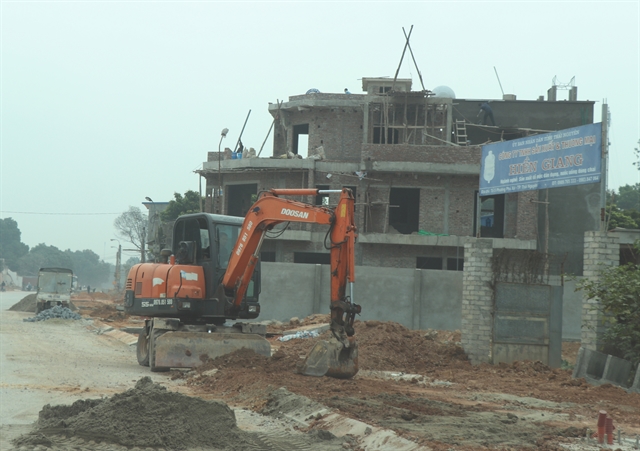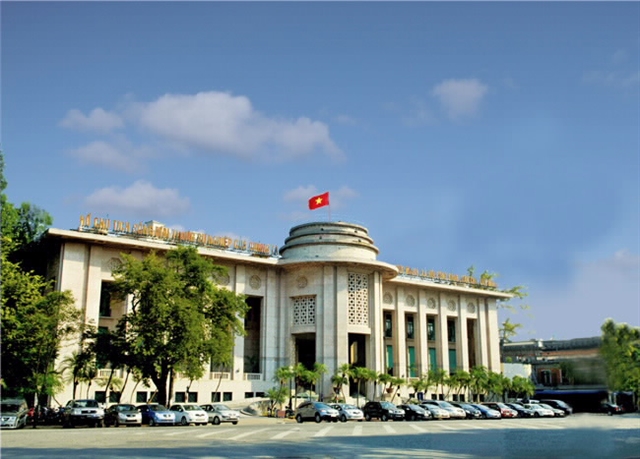 Economy
Economy


|
| An ODA-financed road under construction in Thái Nguyên Province. — VNA/VNS Photo |
HÀ NỘI — Although official development assistance (ODA) has changed Việt Nam's economic landscape significantly over the years, 17 ministries and local authorities returned nearly VNĐ7 trillion of ODA to the Government in the first eight months of 2022.
The Ministry of Labour, Invalids and Social Affairs handed back VNĐ19 billion during the period, which was supposed to finance four projects in Vinh University of Technology and Education, Vinh Long University of Technology and Education, and Dung Quất College of Technology.
The ministry said its authorities in charge of the programmes failed to hand in their bidding plans on schedule and little time is left to get the job done this year, leaving it with no choice but to return the preferential loans to its allocator.
"Under our plan, the authorities must submit their bidding plans for approval prior to June 20. Unfortunately, they haven't done it by far," the ministry explained.
The Ministry of Natural Resources and Environment followed suit with VNĐ250 billion, and then Cần Thơ City with VNĐ1 trillion and Quảng Ninh Province with VNĐ322 billion. Eight-month returned ODA amounted to roughly VNĐ6.8 trillion.
According to the Ministry of Planning and Investment, ODA return happened for the first time in 2020 and has remained an issue since then. Total returned ODA has topped VNĐ20 trillion to date.
The ministry attributed the issue to the difficult-to-meet conditions attached to those preferential loans, which add time to their disbursement and implementation.
"Local authorities have no interest in ODA because they find it difficult to squeeze the loans into their fiscal planning," the ministry said.
Đinh Trọng Thịnh, lecturer at the Academy of Finance, remarked that ODA allocation follows the "subordinate proposal, superior approval" rule, which means subordinate authorities hand in proposals to take out the loans whereas their superior authorities review and approve their proposals.
He said ministries and local authorities certainly had enough time to prepare plausible ODA-allocating plans because they began their fiscal planning for 2022 in Q3/2021. Their failure to deliver the money means that the plans, in fact, were poorly prepared.
He asserted that disbursement delays would create additional costs to ODA-financed projects. In his estimation, two- to three-year delays would increased total costs by 50 per cent.
"On average, the total costs of every ODA-financed project in Việt Nam would be twice its initial estimated costs in five years. In other words, the country has to pay for another bridge for every bridge it builds with five-year disbursement delays," he said.
He also said that the responsibility to move public disbursement at a good pace falls to the heads of ministries and local authorities. They should be held responsible for any slow delivery of public money that could put socio-economic goals at risk.
"That responsibility falls to chairs of provincial people's committees and ministers," he added.
The Ministry of Finance was concerned that ODA return would add a burden to next years' fiscal planning because public disbursement will need more time to clear the backlog. Meanwhile, the delivery of foreign assistance is expected to reach just 40 per cent of annual target this year.
The ministry called on other ministries and local authorities to quickly finish the groundwork for new projects, including population dislocation and site clearance, and re-channel money from sluggish projects to fast-paced projects to accelerate public capital disbursement.
It also requested the ministries and local authorities to submit a detailed report on ODA and other preferential loans disbursement in the first nine months of 2022 and the projection for the whole year.
"The report needs to highlight obstacles that has been holding back the disbursement of foreign loans since early in the year and suggests solutions to remove those obstacles," the ministry said. — VNS




